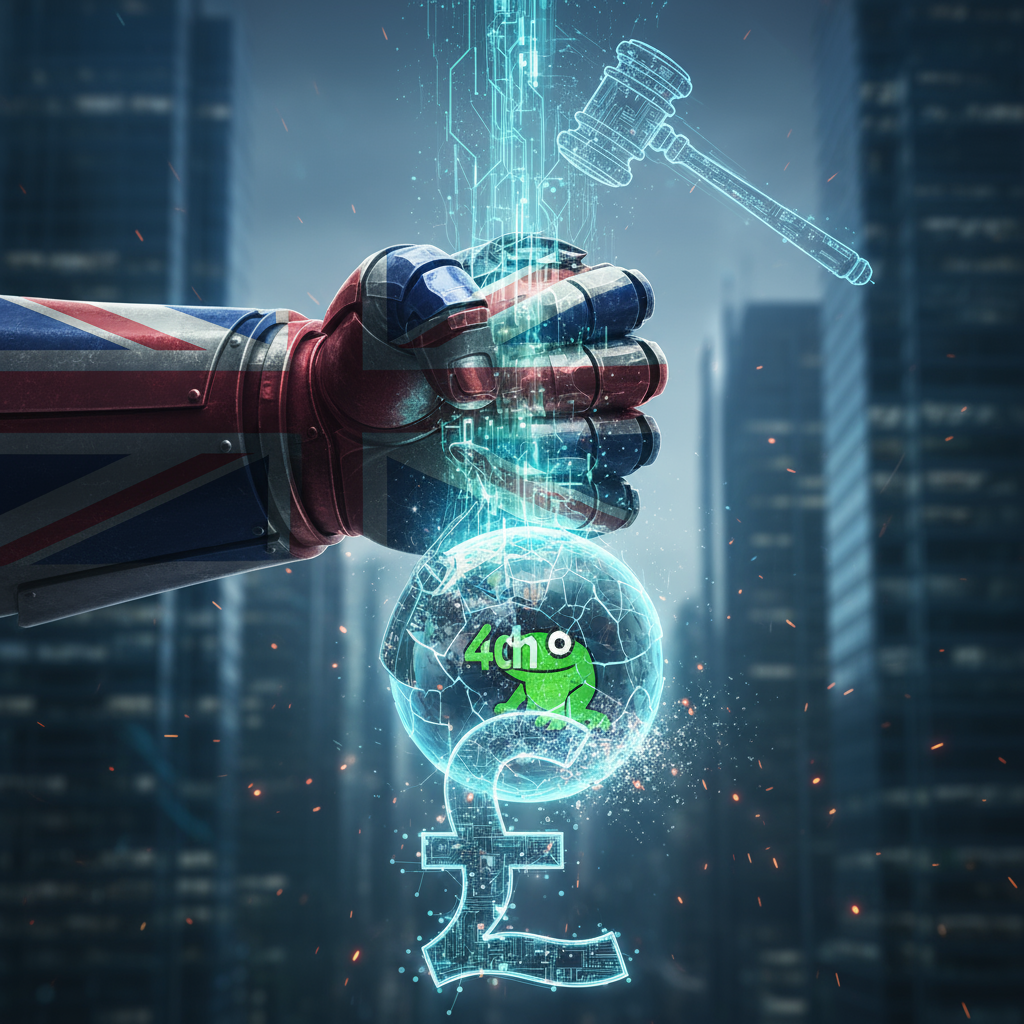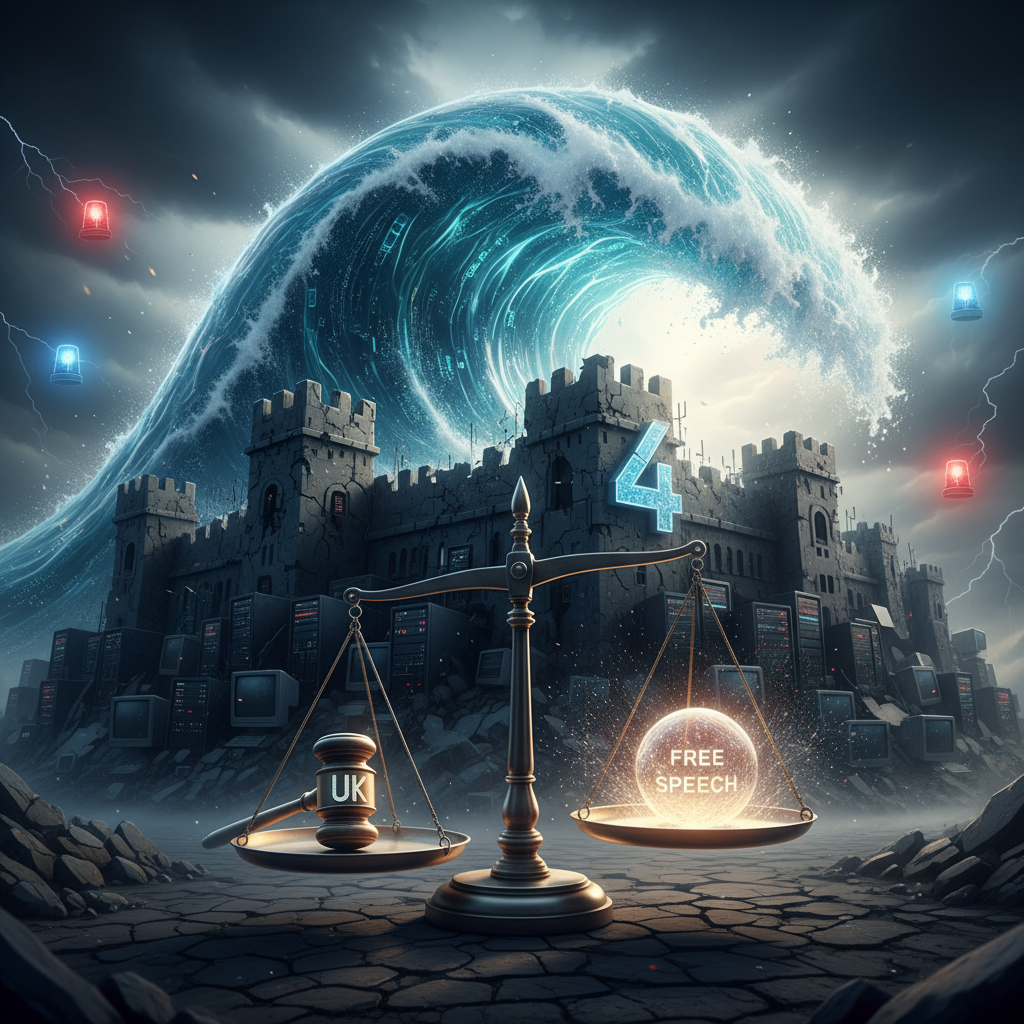The Digital Gauntlet: Britain Fines 4chan, Signalling a New Era of Online Accountability

The internet, once a Wild West of unregulated freedom, is slowly but surely being tamed. For years, the question of who polices online content – and how – has been a contentious one. But a recent, landmark decision from the United Kingdom has sent a clear signal: the free ride might be over, even for platforms operating far beyond their borders. Britain has issued its first online safety fine, and the recipient? The notorious US-based imageboard, 4chan. This move isn’t just a slap on the wrist; it’s a seismic shift in how online platforms, regardless of their location, might be held accountable for the content they host.
This action raises crucial questions about global internet governance, the reach of national laws in a borderless digital world, and the thorny issue of free speech versus online harm. The ramifications of this fine could be far-reaching, setting a precedent that echoes across continents and fundamentally alters the landscape of online responsibility. Let’s delve deeper into what this means for users, platforms, and the future of the internet.
The Online Safety Act: A New Sheriff in Town
The UK’s Online Safety Act (OSA), which came into full effect recently, is a pioneering piece of legislation designed to make online platforms more accountable for harmful content. It imposes a “duty of care” on social media companies, search engines, and other online services to protect their users, particularly children, from illegal and harmful material. This includes everything from child sexual abuse imagery and terrorism content to bullying and hate speech. The Act grants significant powers to the communications regulator, Ofcom, including the ability to issue hefty fines, block access to services, and even pursue criminal charges against senior managers.
The fine leveled against 4chan is the first tangible enforcement action under this new framework. It demonstrates the UK’s commitment to using its legislative muscle to address online harms, even when those harms originate from platforms headquartered thousands of miles away. This isn’t merely about deterring problematic content within the UK; it’s about projecting legal authority into the global digital space.
4chan: A Case Study in Unmoderated Content
To understand the significance of this fine, one must understand 4chan itself. Launched in 2003, 4chan is an anonymous imageboard known for its minimal moderation policies and often extreme content. It has been a breeding ground for various internet subcultures, memes, and, regrettably, also for the dissemination of hate speech, illegal material, and extreme ideologies. Its structure, which allows users to post without registration and for threads to expire quickly, makes tracing and removing harmful content a significant challenge.
For years, 4chan has operated largely outside the purview of traditional legal frameworks, shielded by its anonymity features and its US base of operations. The UK’s decision to fine 4chan directly targets this perceived invincibility. It suggests that operating with near-zero moderation and claiming jurisdictional immunity will no longer be an automatic shield against accountability, especially if the harmful content reaches users within the UK. This represents a direct challenge to the platform’s long-standing operational philosophy.
The Global Reach of National Law: Precedent and Challenges
This fine immediately sparks a critical debate: how far can national laws reach in an inherently global digital environment? The UK’s assertion of jurisdiction over a US-based website sets a powerful precedent. It implies that if a platform serves users within the UK, it falls under the purview of UK law, regardless of its physical location or the nationality of its owners. This concept of “effect-based jurisdiction” is not entirely new in international law, but its application to online content moderation in this manner is a significant development.
However, enforcing such fines and regulations across borders comes with its own set of challenges. Legal battles over jurisdiction, clashes in free speech interpretations, and the practicalities of compelling foreign entities to comply are all potential hurdles. The US, with its strong First Amendment protections, might view certain content as protected speech that the UK deems illegal or harmful. This could lead to complex legal and diplomatic disputes, shaping the future of international digital governance. The fine against 4chan could be the first of many such skirmishes.
What’s Next? Implications for Online Platforms and Users
This landmark fine signals a new era of accountability for online platforms. Smaller, less-moderated sites, which have often flown under the radar, could now face increased scrutiny. Larger platforms, already grappling with content moderation challenges, might see this as an impetus to redouble their efforts to comply with varied national regulations. The UK’s move could inspire other nations to implement similar legislation or to exert their own jurisdictional claims over foreign online entities.
For users, this potentially means a safer online environment, particularly for vulnerable groups. However, it also raises concerns about potential overreach and censorship. The balance between protecting users from harm and upholding free speech remains a delicate tightrope walk. The evolution of the internet from an anarchic space to a more regulated one is inevitable, but the journey promises to be complex and contested.
A Watershed Moment for Internet Accountability

The UK’s decision to fine 4chan is more than just a headline; it’s a watershed moment in the ongoing battle for online accountability. It signals a bold assertion of national sovereignty in the digital realm, challenging the long-held notion that online platforms can operate with impunity across international borders. While the exact long-term implications are yet to unfold, one thing is clear: the era of unchecked online freedom is drawing to a close.
This fine serves as a stark reminder that the digital world is not a lawless void. As the internet becomes increasingly integrated into every aspect of our lives, the demand for safer, more accountable online spaces will only grow. The world is watching to see how this precedent will reshape the internet, one fine, and one piece of legislation, at a time. The digital gauntlet has been thrown, and online platforms are now faced with the undeniable reality of global legal responsibility.

